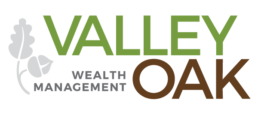What if you wake up tomorrow morning wealthier than you are today, would you know what to do?
Inheriting money can be a confusing and emotional experience. You’ve lost someone close to you and now you must decide how you’re going to manage the money that you’ve never had before.
“Far too often, people mismanage an inheritance and lose it all because they weren’t prepared for how to invest or manage it,” says Tim Russell, Founder and Wealth Advisor for Valley Oak Wealth Management. It’s up to you to be a good steward of the money that was passed on to you and here are some important steps you can take to help you through the process:
Open an account that is in your name only.
Make sure that the money is deposited into an account that is in your name only. It’s important to avoid depositing the inheritance into a joint account so that it is kept separate from your marital assets. In the case of a divorce, your inheritance will remain yours and not a part of the community property pool. If you’ve inherited assets other than cash, like stocks or bonds, hold on to them until you’ve talked to your financial advisor. There could be tax consequences should you decide to sell them.
*Remember: FDIC insurance covers up to $250,000 per account, per bank. If you have more than $250,000, spread it out in different accounts with different banks to make sure it’s all insured.
Consult a financial advisor.
Receiving an inheritance might be your first involvement with the responsibility of managing a large sum of money. Even if you have experience, professional management could save you a lot of time and money. They can direct you towards prudent investments and help you manage any tax implications of investing. Most of all, the right financial advisor can help you create a plan for the future.
Revisit your debt situation.
Until you’ve talked to your financial advisor, avoid paying off your mortgage and credit card debt. When the time comes that you need to use some of your inheritance to pay down your debt, focus on the debts that charge the highest interest rate. Once you have prioritized which debts to pay first, consider building an emergency fund. The rule of thumb calls for a savings equivalent to 3-6 months of expenses, but this can be customized and tweaked to fit your comfort levels.
Don’t quit your job.
Unless you’ve received a vast sum of money, keep your job. Before you hand in your letter of resignation, talk to your advisor about how long your windfall might last. “With the proper planning and withdrawal rate, you may be able to start an early retirement. But don’t quit your job until you know that it’s an option,” says Tim Russell, a Wealth Advisor at Valley Oak Wealth Management.
It’s okay to say “no”.
It’s not uncommon that family members, friends, and sales people will come out of the woodwork to “hit you up” once you’ve inherited money. It’s okay to say no and it might be a word that you have to use even when it doesn’t feel good. Once you have a plan outlined, you can decide what you may have left over to consider sharing.
Now it’s your legacy.
When you are bequeathed money, the legacy becomes yours to protect. Creating a will and a trust to secure your new wealth will help you pass on your legacy to your loved ones. Probate is a process that your assets go through if they are not covered under the umbrella of a will and trust. The process of probate is timely and very costly. Working with an estate attorney to draft a sound will and trust will help you avoid probate so your legacy can get to your beneficiaries quickly.
The emotional and logistical aspects of a windfall can be exhausting. It is most important to know that you, with some help, will get through it and be so glad that you took the appropriate steps. Valley Oak Wealth Management is here to help you. Please call us, (415) 898-4439, and we will do everything we can to make you feel good about the way that you manage your gift.
Related Posts
Choosing the Right Financial Advisor
Getting a financial advisor is a very important decision, as they become your partner in planning and managing your finances throughout your life’s stages and changes.
Retirement Planning
Retirement planning is easier than it used to be, thanks to the many tools and resources available. Here are some basic steps to get you started.
Is it Possible to Grow my Investment without Losing it?
For the past two decades, Structured Investments have creeped into the spotlight as an alternative for investors seeking certainty of return. The next to nothing returns of many traditional conservative investments have left something to be desired. Now investors are looking elsewhere: They’re looking at Structured CD’s.

